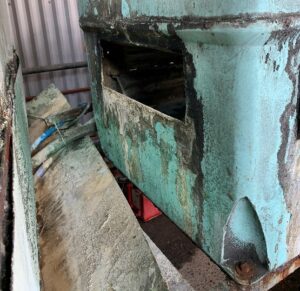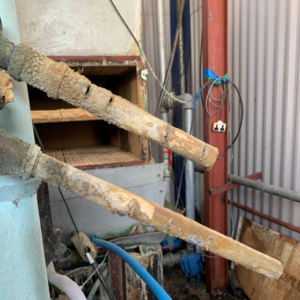A plastics manufacturing company in West Bromwich has been fined after it put workers and the public at risk of being infected with potentially deadly bacteria.
The Health and Safety Executive (HSE) investigated Riaar Plastics Limited after members of the public became infected with Legionnaires’ disease in September 2020.
Five people were infected with the potentially deadly lung infection. One person was taken to intensive care and put on a ventilator after being infected.
Riaar Plastics Limited was fined for failing to manage the risk of Legionella. HSE found the water-cooling towers inherited by Riaar Plastics Limited at its site on Black Lake, West Bromwich, were in an extremely poor condition. This allowed Legionella bacteria to grow in the water-cooling towers and pipes, exposing employees and members of the public to risks of significant ill health.


People can get Legionnaires’ disease when they breathe in small droplets of water in air that contains the Legionella bacteria. HSE guidance can be found at: Legionella and legionnaires’ disease – HSE.
Riaar Plastics Limited, of Black Lake, West Bromwich, West Midlands, pleaded guilty to breaching Section 2(1) and 3(1) of the Health and Safety at Work Act 1974. The company was fined £50,000 and ordered to pay £11,000 in costs at Birmingham Magistrates’ Court on 2 June 2023.
This prosecution was led by HSE principal inspector Jenny Skeldon and HSE senior enforcement lawyer Kiran Cassini.
HSE principal inspector Jenny Skeldon said: “The condition of the cooling towers at this site was the worst I had ever seen. The Legionella exposure risk to employees, site visitors, neighbouring duty holders and members of the public was extreme in nature.
“Exposure to Legionella can cause death or serious illness where water cooling systems are not been managed effectively. It is really important that proactive management of the risk from Legionella bacteria is taken seriously. There are well publicised and simple precautions for companies to take, and if followed, will ensure that employers manage and control the risk.”
Notes to Editors:
- The Health and Safety Executive (HSE) is Britain’s national regulator for workplace health and safety. We prevent work-related death, injury and ill health through regulatory actions that range from influencing behaviours across whole industry sectors through to targeted interventions on individual businesses. These activities are supported by globally recognised scientific expertise. hse.gov.uk
- More about the legislation referred to in this case can be found at: legislation.gov.uk/
- HSE news releases are available at http://press.hse.gov.uk